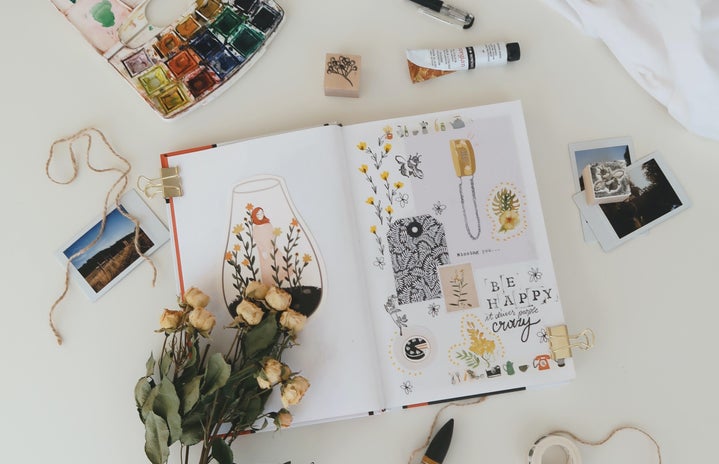In 2021, I got really obsessed with DIY statement earrings. I bought a bunch of hooks and clips and items to turn into wild earrings, only to make a couple of pairs of rubber duck earrings and then never touch my earring supplies again. The materials I had spent money on and only used once were now in a pile with my air-dry clay, my painting supplies, my sketchbook, my sewing materials, my holiday ornament supplies, my board game collection, my… well, you get the idea. I’m not the only one who struggles with jumping from hobby to hobby, though. Some people I saw on TikTok even came up with the term “hobby graveyard” to describe just how many hobbies they’ve lost over the years. But why do we give up on hobbies? And more importantly, how do we keep hobbies we enjoy? Here are some tips on how to keep your hobbies out of the hobby graveyard, and maybe even find a way to resurrect the dead ones.
What Causes Hobby Graveyards?
There are many reasons why people drop hobbies. The most common answer is that people just lose interest in things over time. Our modern world is constantly changing and moving at a fast pace, so it makes sense that we don’t stay the same all the time. People go through phases and their interests change over time. This can also be influenced by social media and what is trending. Crochet is popular right now, so many people have picked up crocheting as a hobby, but chances are many people won’t stick with crocheting after the trend has passed. There’s nothing wrong with wanting to try something that is trending, but it may explain why you lose interest after your hobby leaves the social media spotlight.
Speaking of fast-paced environments, you also may drop your hobbies because you are too busy to keep up with them. Psychologists try to encourage a balance between work and hobbies to maintain a well-rounded and satisfying life, but this idea of balance is very hard for most people to achieve. Harvard Business Review suggests that people should think of their work-life balance as less of an achievement and more of a cycle that is constantly being worked on. After conducting almost 200 interviews with office professionals, they found that people are willing to work long, unsatisfying hours and sacrifice time they could be spending with family, friends, or their hobbies. They suggest that people should take the time to evaluate their current priorities and adjust their schedules and lives in a way that will make their balance a little more satisfying.
Maybe you dropped your hobbies because they didn’t give you instant gratification. This is sometimes the case for people with ADHD who jump from hobby to hobby. According to the National Library of Medicine, people with ADHD have a dopamine deficiency, which means their brains aren’t able to produce dopamine (the chemical that causes pleasure) at the same rate as a non-ADHD brain. However, the want for instant gratification isn’t just an ADHD thing, and many people may feel disinterested in their hobbies if they are not getting satisfactory results when they want them. Maybe the end goal is too far away, or maybe it takes more skill than you currently have. Whatever the case may be, that lack of satisfaction can drain the fun out of a hobby.
How do I stick with Hobbies Longer?
So now that you have an idea of what may be causing you to lose interest in your hobbies so often, what are some ways you can keep hobbies longer? New Hobby Box suggests that you find a motive. When you first start a hobby, set a goal for yourself on what you’d like to accomplish. If you want to pick up crocheting, find a project you want to learn to make and start learning skills that will help you get there. It’s also important to find something to inspire you when you feel like you are losing interest. If you complete that first project you wanted to do, check out Pinterest and see if you can find something else that you want to make, or look at the supplies you have left over and try to come up with something yourself. You can also try to branch out in your hobby and do something related to it that’s different enough to keep you engaged. If you only crochet clothes, maybe you can try crocheting toys or accessories and learn some new skills related to those. These tips may not work for everyone, but they can be a good starting point in figuring out how to keep your hobbies alive.
Hobbies are going to come and go as you continue to live. There is nothing wrong with losing interest in a hobby, and there is nothing wrong with starting a new hobby after that original hobby. If you are enjoying yourself and you aren’t hurting others, it doesn’t matter what you do. Take some time to look back on your hobby graveyard and appreciate where you came from and where you are headed next.


